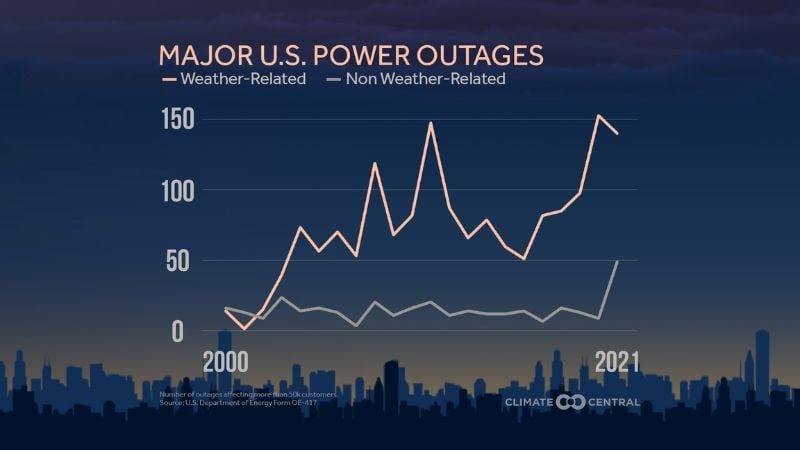Bridging Weather and Power: Insights into UK’s Weather-Induced Power Faults
University of Bristol researchers uncovered significant links between power faults and corresponding weather patterns.
Meteorological conditions can significantly influence the reliability of the electrical power system. Elements like wind speed, gusts, temperature, precipitation, and ice storms, directly or indirectly, are key contributors to the numerous power outages occurring every year.
University of Bristol researchers have unlocked associations between weather patterns and power faults within the U.K. This article explores the challenges of weather-dependent power outages and the study's approach to mitigating them.
Lightning striking power lines. Image used courtesy of Pexels
The Impact of Weather on Power Grids
The impact of weather on power grids is a critical concern for engineers and utility operators, as it significantly influences the reliability, efficiency, and safety of electricity delivery. Weather phenomena such as storms, hurricanes, extreme temperatures, and lightning can profoundly affect the infrastructure and operation of power grids.
Storms and hurricanes, characterized by high winds and heavy rainfall, pose substantial risks to power grids. High winds can cause physical damage to transmission lines, poles, and other infrastructure components, leading to widespread power outages. Furthermore, heavy rainfall and flooding can compromise the structural integrity of power substations and disrupt underground cabling systems.
Weather causes more outages than other factors. Image used courtesy of Climate Central
Extreme temperatures, both high and low, also impact power grid performance. During heatwaves, electricity demand surges as consumers and businesses increase cooling system use. This heightened demand can strain the grid, potentially leading to overloads and blackouts. Conversely, extremely cold temperatures can freeze equipment and reduce the efficiency of thermal power plants while increasing electricity demand for heating and further challenging grid stability.
To mitigate these weather-related challenges, power grid operators employ various strategies, including weather forecasting, grid modernization, and integrating smart grid technologies. Still, no solution has been presented to fully avoid weather-related power outages and system damage.
Identifying Weather and Outage Trends
To discover links between weather patterns and weather-induced power system failures, the University of Bristol researchers analyzed a decade's worth of data (2010-2019) from the National Fault Interruption Reporting Scheme (NaFIRS). They correlated it with the Met Office's 30 distinct weather patterns. They aimed to uncover specific trends and correlations that could inform better preparedness and response strategies for power systems against adverse weather conditions.
Long-term probability of next-day weather given the current weather in the UK in winter. Image courtesy of Souto et al.
Using a unique equation, the team calculated the frequency of weather-induced power outages for each weather pattern across different seasons. This involved summing the number of failures attributed to a particular weather phenomenon during a given weather pattern and time interval over the study period. Furthermore, they evaluated the strength of trends in weather-induced power outages and associated weather pattern transitions using additional computational models.
The analysis revealed significant correlations between certain weather patterns and the likelihood of power outages. For instance, patterns characterized by high wind speeds and precipitation were strongly linked to outages caused by wind, gale, and lightning strikes. The study also identified seasonal variations in the impact of different weather patterns on power system reliability.
Moreover, the research highlighted the conditional probability of specific weather pattern transitions, providing insights into how the persistence or change of a weather pattern can influence the risk of power outages.
Reducing Outages
Power outages, with their substantial consequences for individual consumers and utility companies, often lead to considerable economic and social disturbances. By employing a decade of empirical data and sophisticated analytical methods, the study uncovers critical insights that can significantly improve the resilience and reliability of power systems in the face of adverse weather conditions. The findings contribute to the academic discourse and offer practical applications for enhancing grid stability and ensuring uninterrupted power supply to consumers.









